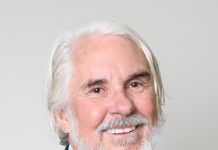A state-appointed panel favors a plan that would expand Laguna Beach’s existing marine reserve at Heisler Park to encompass 5.6 miles of the town’s shoreline and result in a ban on recreational and commercial fishing within the reserve for several years.
Fishing interests who oppose the plan, including Laguna Beach’s mayor, said following the vote this past Tuesday they will contest the decision.
The endorsed plan, which would expand marine protections in numerous areas between Point Conception and the Mexican border, still requires finalization by a state commission through a regulatory process that takes at least a year, but significant change is not expected, according to Fish and Game Commissioner Don Benninghoven.
Laguna’s rocky shoreline proved a pivotal geographic link between other fertile habitats in La Jolla and Palos Verdes, identified by scientists as critical zones to support a healthy marine ecosystem, thus requiring the highest level of protection. The favored plan would create a reserve from Emerald Bay to Table Rock Beach, leaving intact conservation areas that permit fishing in Crystal Cove State Beach to the north and coves in south Laguna, as well as areas further off shore.
Nevertheless, Laguna’s mayor, Kelly Boyd, the sole locally elected official to oppose this plan, vowed to find an avenue of appeal. “It’s not over,” said Boyd, who, along with United Anglers of California, collected and delivered 2,000 signatures of mostly local residents in support of a more lenient plan crafted by fishing interests.
“They were not responsive at all,” said Boyd, of the Blue Ribbon Task Force, which heard hours of testimony at a Los Angeles airport hotel before voting. “This is just their recommendation. There is still a glimmer of hope,” he said.
While Boyd expressed disappointment at the outcome, one of the leading conservationists was also less than ebullient.
“There were no high-fives,” said Ray Hiemstra, associate director of Orange County Coastkeeper, a participant in drafting plans that were under consideration. “Group three (comprised mainly of environmentalists), none of their shapes were used in the entire area. From that group, you had 20 people who basically wasted their time. If I was to characterize the whole thing, it was a compromise between the middle-ground group and the fishermen’s group.”
“There is constant tension between using the best available science versus addressing local and immediate economic interests,” said Steve Murray, a professor of marine ecology, dean of Cal State Fullerton’s College of Natural Sciences, and part of the scientific team advising the task force. He said compromises resulted in carving out smaller protected reserves, where the goal of bolstering protected species will take longer and “outcomes are less certain.” Species in Laguna such as kelp bass and sheephead would take at least five years of protection “before we see anything substantive,” he predicted.
Those protections will eliminate 50 to 60 percent of annual income for Rodger Healy, president of the California Lobster and Trap Fisherman’s Association. “I think displacing a sustainable fishery isn’t right. I think the consolidation of fishing in other areas is going to be to the demise of our fishery,” he said, referring to Pacific Spiny lobster, which is rated among the most sustainably-fished species by numerous watch groups.
Bob Bertelli, president of the California Sea Urchin Commission, called the vote a political mistake that infuriated the fishing community. “We kept playing by their rules. They kept changing the rules. Now we will play by our rules. We are going to put a tremendous amount of money and political will into this. This is not about a bunch of rich people that are lucky enough to live by the ocean.”
Laguna Beach Council member Toni Iseman, who in June introduced the measure endorsing a city-wide marine reserve, implied the economic impact of no-take rules would be more beneficial than negative. “As we have more to look at, we’ll become like Poi Pu,” she said, a famous snorkeling spot and tourist destination on Kauai.
Concern has recently been raised that under the Marine Life Protection Act, a marine reserve could also close beaches to swimming, surfing, kayaking and other non-consumptive activities, but such restrictions have never been imposed since the law was enacted 10 years ago.
“It is written, but that is not the intent,” said Iseman. “No one on the council would support that,” she said, adding that the Blue Ribbon Task Force didn’t even consider such restrictions.
“People who come to enjoy the natural resources will see this as a further stamp of our commitment,” said Iseman, whose statement at a hearing last month that a majority of Laguna residents supported a city-wide marine reserve drew rebukes from fishing supporters.
Coincidentally, the vote favoring a marine reserve came almost 20 years to the day after another defining moment in Laguna’s history, the canyon protest walk of 1989 that proved a catalyst for creation of a wilderness greenbelt around the town.
The heated discourse between fishing interests and environmentalists, which intensified in the weeks leading up Tuesday’s hearing, will not likely abate before the Commission meeting on Dec. 9. On Monday, Los Angeles Mayor Antonio Villaraigosa issued a statement favoring strong marine protections.
Both fishermen and conservationists claim their proposals will benefit the local economy, but neither has conducted an economic analysis to support their contention. Both sides also claim overwhelming public support of their positions, while neither has unbiased data supporting these claims.
Findings of a poll conducted by the American Sport Fishing Association and issued last conclude Laguna voters oppose creating a city-wide fishing closure by a two to one margin. Critics called the finding misleading since a city-wide ban was not under consideration.
Orange County Coast Keeper fired back, citing a report by the Public Policy Institute of California that found 71% of Californians support more marine reserves, even if this limits commercial and recreational fishing.
Joel Greenberg, chairman of the southern California chapter of the Recreational Fishing Alliance, predicts continuing contention at the commission level and possible implementation no earlier than 2012.
While the tide seems to have turned against those who earn a living harvesting the sea, Bertelli pointed out that every non-consumptive user who orders fish in a restaurant or buys it from a store becomes a consumptive user, too.




